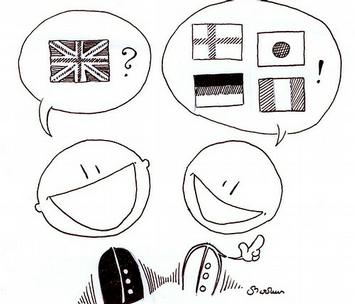THE INDIVIDUAL TASK IN in the History of the English Language The Foundations of Languages Br
СОДЕРЖАНИЕ: THE MINISTRY OF EDUCATION AND SCIENCE OF UKRAINE TERNOPIL V.HNATYUK NATIONAL PEDAGOGICAL UNIVERSITY English Philology Department THE INDIVIDUAL TASK INTHE MINISTRY OF EDUCATION AND SCIENCE OF UKRAINE
TERNOPIL V.HNATYUK NATIONAL PEDAGOGICAL UNIVERSITY
English Philology Department
THE INDIVIDUAL TASK IN
in the History of the English Language
‘ The Foundations of Languages: Brain, Development, Acquisition’
By Nastia Dudar
Group EPH-32
Ternopil 2010
- English language is now the most widely spoken tongue, and it covers the globe in the way that no language is ever done before.
![]()
![]() - The study of language is really the foundation of all other learning. Thus, back in Middle ages , when the first real universities were formed, all knowledges were divided into seven
liberal arts
. And there were subdivided into trivium
and quadrivium
.
- The study of language is really the foundation of all other learning. Thus, back in Middle ages , when the first real universities were formed, all knowledges were divided into seven
liberal arts
. And there were subdivided into trivium
and quadrivium
.
| grammar |
arithmetic |
| rhetoric |
geometry |
| logic |
music |
| astronomy |
- language defines us as a human . Abstract language is uniquely human. All our cultural achievements rely upon language. Language is a medium of our communication.

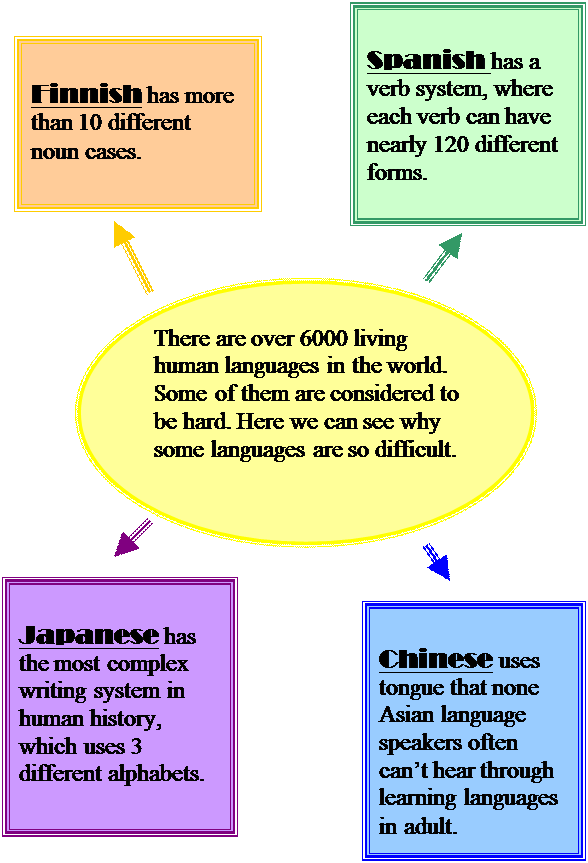 |

English is also considered to be hard, because there are many exceptions and different rules. And because English imports new vocabulary so readily that the latest edition of the after English dictionary is not even intended to be published in paper. But you can get it on a CD or another electronic version.

Some peculiarities and interesting facts about children’s teaching languages
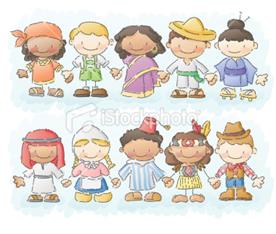
-children under 6 years can speak
different languages easily.
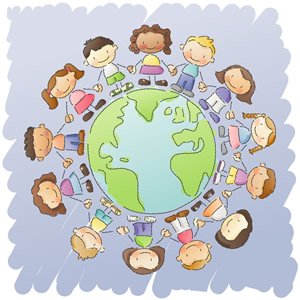
-there is no upper limit to the number
of languages that a child can learn.

- between the age of 6 and puberty
language learning is still very easy. After puberty something hardens in the brain and it becomes much more difficult to learn new languages.

- adults in their turn can study languages
for decades and not ever achieve perfect
pronunciation.
What is language?
If language is completely natural phenomena, why do we have 6000 different languages?
If language is completely cultural phenomena, why is it a common capability of every human?
In Middle ages language was thought to be a gift from God. And the Bible Tower story was the explanation to all the languages.
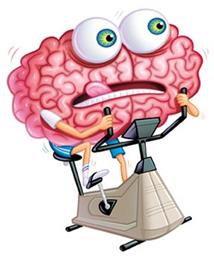 But in 1861 French physician Pierre Paul Broca
found that a certain part of a brain was connected to speech.
But in 1861 French physician Pierre Paul Broca
found that a certain part of a brain was connected to speech.
So, how does it work?
 Signals from the brain travel down to the throat, mouth, lips and lungs. You force air out of the chest, using the lungs and the diaphragm, trough little fold in the throat, that are called the vocal cords, and then you modify the sound that you produce that way by changing the arrangements of what’s called the vocal tract, which includes the throat, the mouth, the lips and the palate. This movement is called articulation.
Signals from the brain travel down to the throat, mouth, lips and lungs. You force air out of the chest, using the lungs and the diaphragm, trough little fold in the throat, that are called the vocal cords, and then you modify the sound that you produce that way by changing the arrangements of what’s called the vocal tract, which includes the throat, the mouth, the lips and the palate. This movement is called articulation.
How did language arrive? There were a lot of theories, but all of them failed. Here are some of them:
| theory |
meaning |
| Ding-dong |
Imitating different sounds and then they become connected with other sounds, then they become a language. |
| Bau-wau |
Imitating animals. |
| Pu-pu |
Natural human sounds come out. |
| Ta-ta |
Is linked to gestures. |
| O-ou |
Part of hunter gather social culture or warning someone. |
| Yo-hihou |
People could pull heavy rocks. |
As to English, it develops in two ways:
- trough internal development( through isolation and separation);
- from external influence and mixing.
